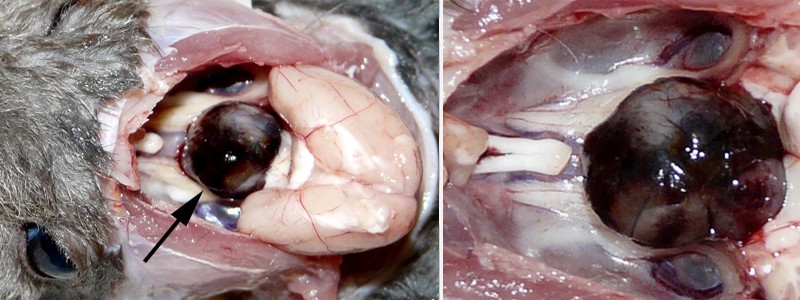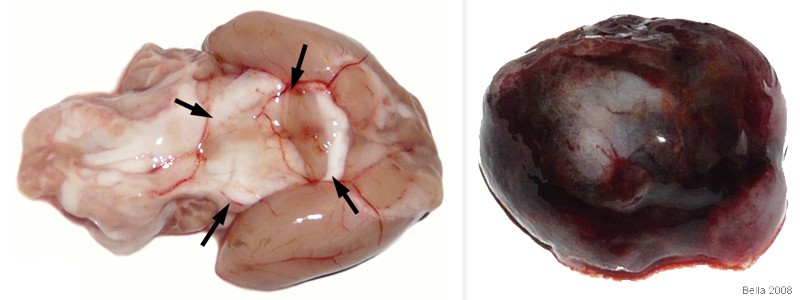Figure 4: Pituitary Tumor in a 25-month-old female (Jemma).
Case history and photos
History
Jemma, a 25-month-old intact female rat housed with another female. She had a history of malocclusion that required regular tooth trimming. There were no respiratory issues noted.
At approximately a year and a half of age she was separated from her cage mate for several months. She lost weight and even after they were reunited did not return to her previous weight.
Clinical Signs
As the rat neared 24 months of age the owner noted that the rat was losing the use of her hind legs, and attributed it to age-related degeneration. At 25 months the owner noticed the rat seemed to be “unsteady.” Within a week the rat’s coordination and balance had worsened and she was taken in for an evaluation. During the evaluation it was noted that the rat was unable to grasp with her front paws and unable to walk without falling over.
Outcome
Due to the severity and the sudden onset of the signs of illness, euthanasia was recommended. A necropsy was performed.
Diagnosis and Discussion
The necropsy revealed a large pituitary tumor. The pituitary tumor was large enough to create a permanent depression in the underside of the brain. Many pituitary tumors cause clinical signs over a long period of time as the tumor grows. However, others may not exhibit clinical signs until the tumor is quite progressed.
Photos
 The arrow points to the pituitary tumor. The photo on the right shows a close up of the tumor in situ. |
 In the photo on the left the arrows outline the large brain depression formed by the tumor. On the right is a close up of the tumor after removal. |
Case History information supplied by Sarah.
Necropsy, write-up, and photos by J. “Bella” Hodges


